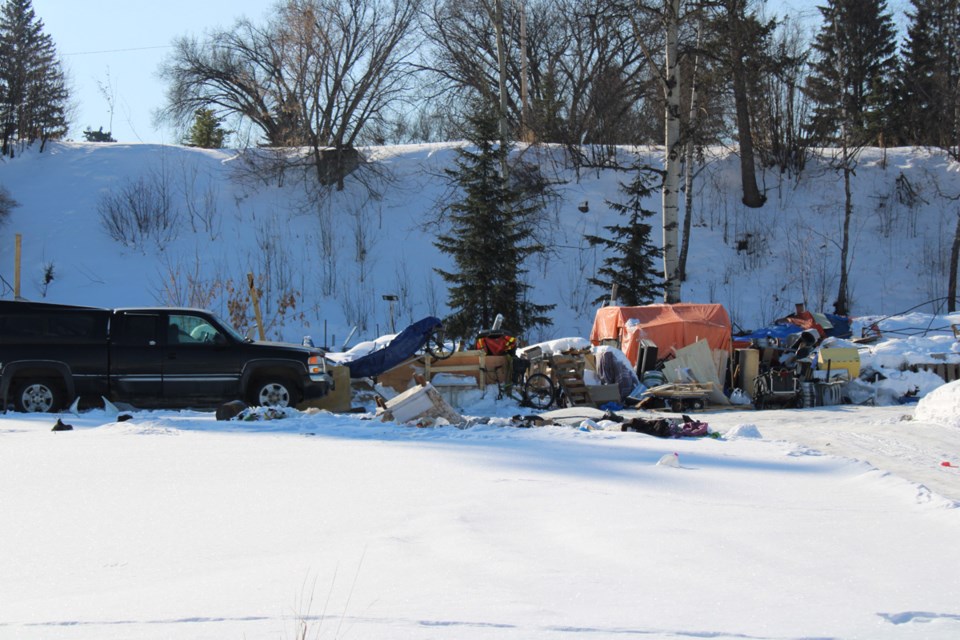A report going to city council on Monday proposes that the city designate the Lower Patricia Boulevard encampment, named Moccasin Flats by residents, as the only public area in the city where overnight camping is allowed.
On July 11, 2022, the previous city council rejected a similar proposal, city director of public safety Adam Davey wrote. However, the new city council’s 2023-26 strategic plan directed administration to provide options regarding centralized encampment management.
“This approach allows for the eventual cleanup and remediation of Millennium Park to return it to its original purpose in addition to restricting overnight sheltering throughout the City’s other parks by authorizing one central site, at Lower Patricia (which is protected by Court-Order until which time suitable housing is available for everyone),” Davey wrote. “This report forms part of a larger ongoing strategy that shall be presented in the coming months.”
The proposed amendments to the city’s Parks and Open Space Bylaw would allow homeless people to set up temporary shelters in Moccasin Flats, he wrote, as the city “does not have the legal authority to ban overnight sheltering throughout the city until suitable housing for every inhabitant is provided. Achieving this is probably not feasible in the foreseeable future.”
In terms of how the amended bylaw would be enforced, sheltering in unauthorized locations would not be permitted, the report says.
“People occupying other locations will need to move into shelter spaces or relocate to Lower Patricia,” Davey wrote. “The courts have also identified that ‘daytime sheltering’ is not a protected right, and that there is no right to occupy a municipal park as an ‘encampment.’ In other words, people can remain and relocate to Lower Patricia but nowhere else, should Council approve the proposed Amendments to the Parks & Open Spaces Bylaw.”
Other options available for city council would be a decentralized model, which would designate multiple overnight camping locations throughout the city or maintaining the status quo and taking no further action, the report says.
“It is not evident which approach is ‘better.’ Both (the centralized and decentralized) approaches have tradeoffs, costs, and benefits, depending on one’s vantage point,” Davey wrote. “By not approving the recommendations contained in this report, the status quo shall remain. This is potentially the least-worst and lowest-cost option when considering the current political environment.”
A key part of the broader strategy will be advocating and supporting the provincial government and BC Housing “in their provision of housing, health, and social services,” Davey wrote.
“When the province fulfills its responsibilities, it will no longer be necessary for anyone to shelter in parks and public spaces in the city,” Davey added. “While working in collaboration with the Province, the City must also address the health and safety concerns of residential property owners and local businesses that are impacted by the presence of the unsheltered homeless population seeking temporary shelter or services.”



